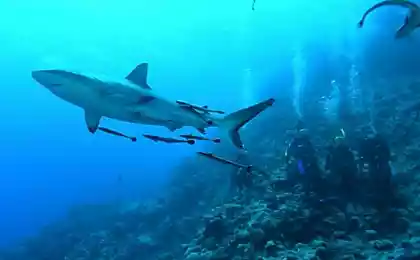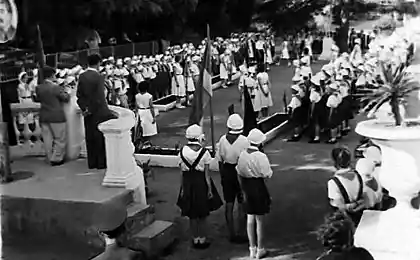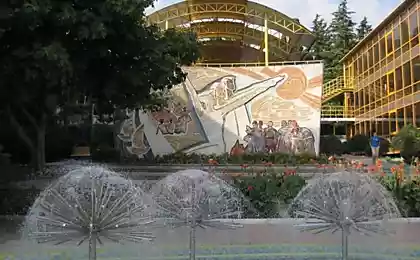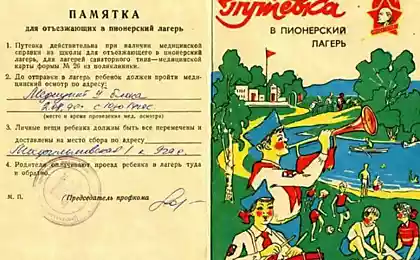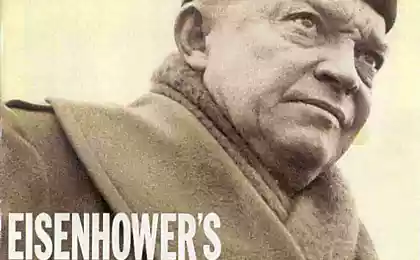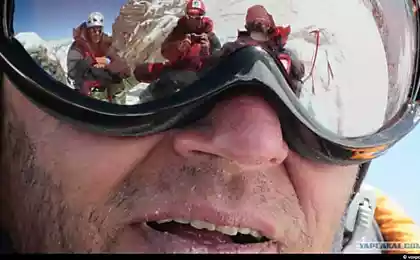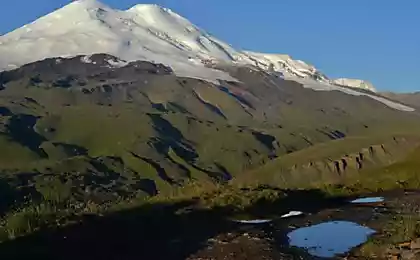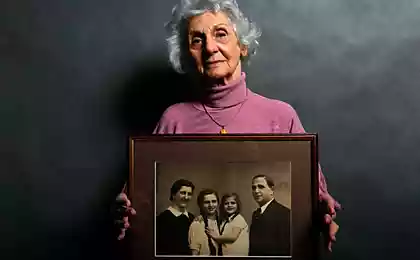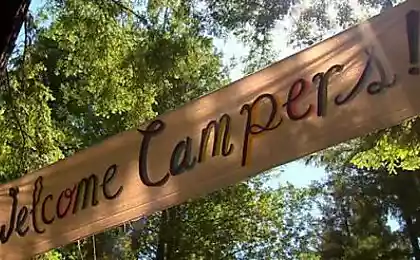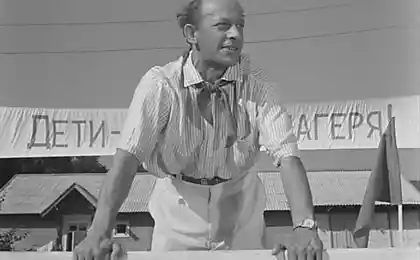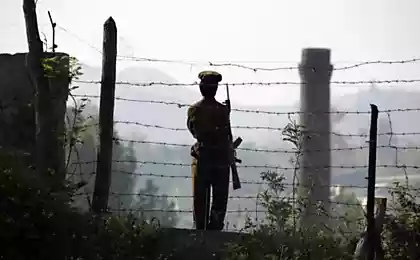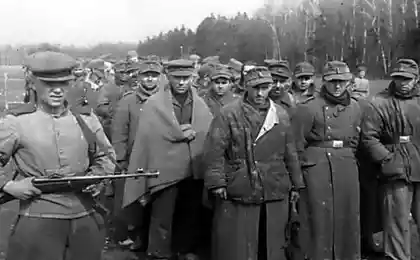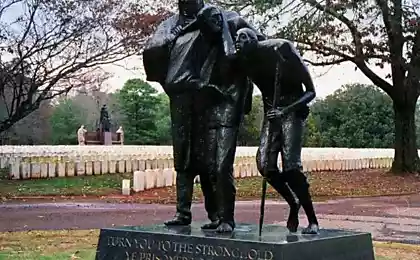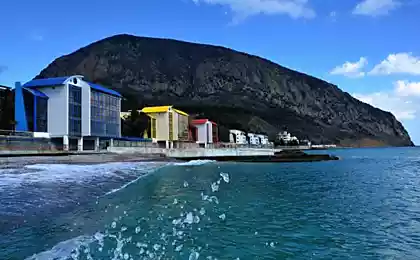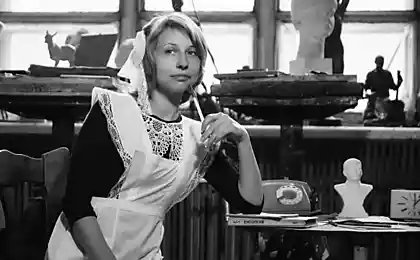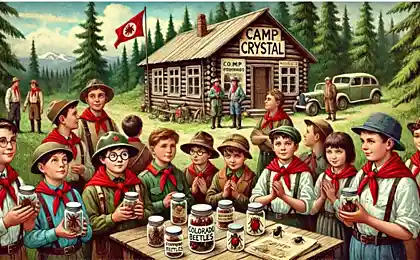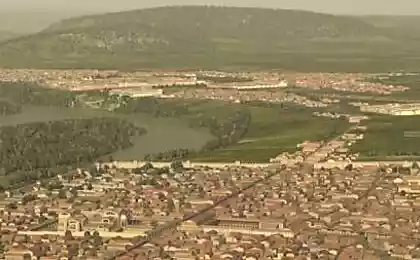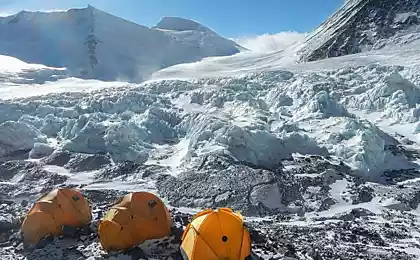1180
Dnipro camp
The author of this photo essay wants to show you today is well preserved since the Gulag camp. Inside awaits a story from the scene and clippings from memories of former prisoners - Peter Demant and Vsevolod Pepelyaeva.
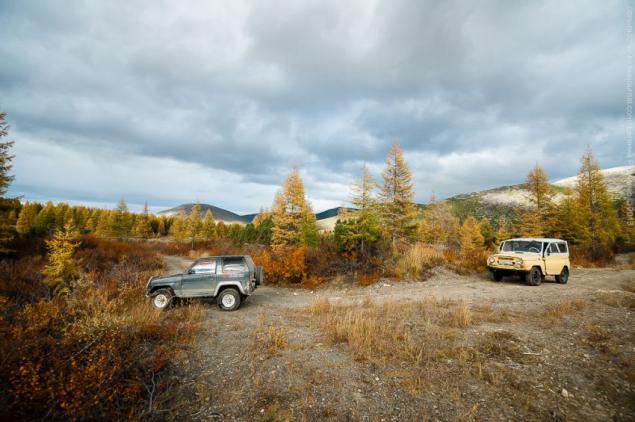
& quot; "Studebaker" enters into a deep and narrow, very steep hills to bite the valley. At the foot of one of them, we see the old tunnel with superstructures, rails and a large mound - blade. At the bottom of the bulldozer had already begun to spoil the land, turning all the herbs, roots, boulders and leaving behind a broad black band. Shortly before us arises town of tents and several large wooden houses, but we do not go back and turn right and climb to watch the camp. Watch an old gate wide open, from the liquid barrier of barbed wire on shaky rickety weathered pillars. Only the tower with a machine gun looks new - white pillars and the smell of pine needles. We set down and unceremoniously come into the camp. & Quot; (AP Demant)
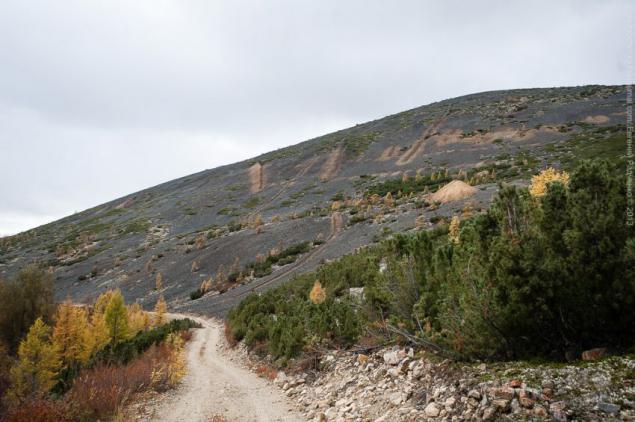
"The name of his" Dnipro "was named a key - one of the tributaries of irregular. Officially, "Dnipro" called mine, although the main percentage of its production comes from the ore areas where tin is mined. A large area of the camp is spread at the foot of a very high hill. Among the few old huts are long green tent just above whiten houses new buildings. During the infirmary several prisoners in blue overalls impressive digging pits under the insulator. The dining room is located at the half-rotten, gone into the land of the barracks. We were settled in the second barracks, located above the other, near the old towers. I arranged on through the upper bunk, facing the window. For the view from here to the mountains with rocky peaks, green valleys and streams with waterfalls would have to pay an exorbitant price somewhere in Switzerland. But here, we get this fun is free, so we, at least, it seems. We still do not know that, contrary to the general rule of the camp, the reward for our hard work will scoop of porridge gruel yes - we will select all earned the Coast camps "(P. Demant)
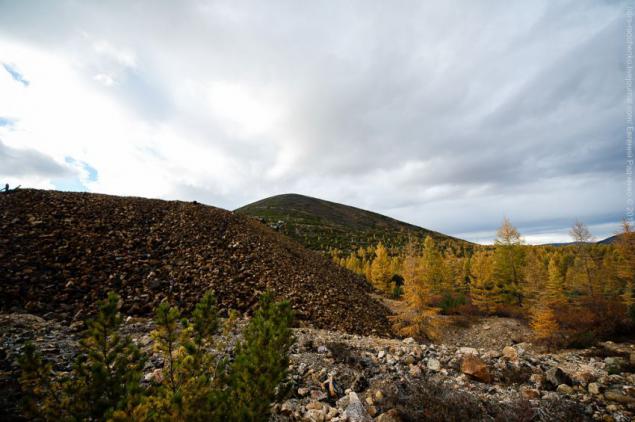
Boer punch. The slot was inserted a solid bit.
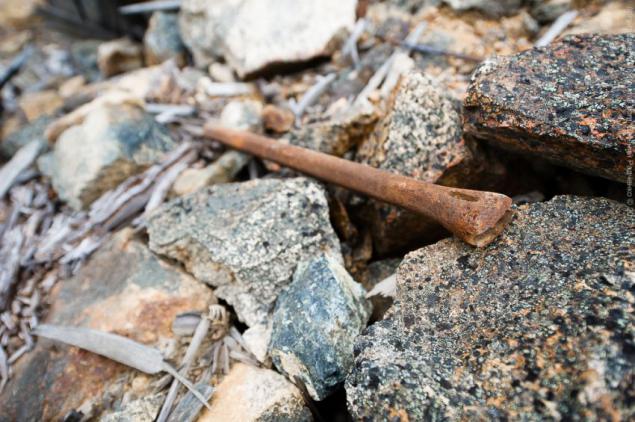
Carpenters did hopper, platforms, trays, and our team has set motors, gears, conveyors. In total, we launched six such sluice. As the start of each working on it were our mechanics - the main motor on the pump. I was left on the last instrument mechanic. (V. Pepeliaev)
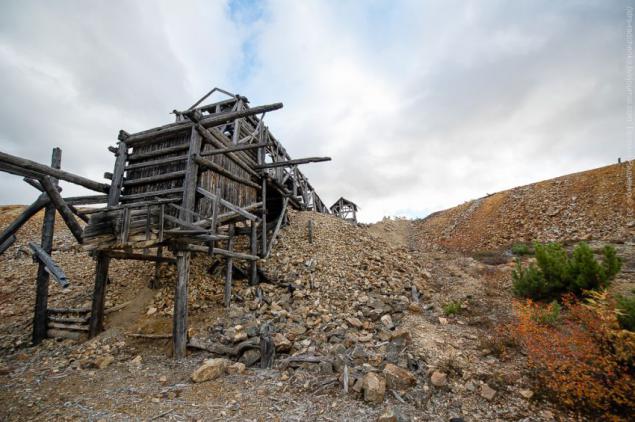
We worked in two shifts, 12 hours a day seven days a week. Lunch is brought to work. Lunch - a 0, 5 liters of soup (water with black cabbage), 200 grams of cereal, oatmeal, and 300 grams of bread. My job - including a drum, tape and sit see that everything revolves yes on tape was a rock, and everything. But sometimes, something breaks - can tear tape stuck stone in a bunker, refuse pump or something. Then come on, come on! 10 days afternoon, ten - night. During the day, of course, easier. On the night shift until you reach the zone until breakfast, and just fall asleep - have dinner, go to bed - to check, and then, and dinner, and - on the job. (V. Pepeliaev)
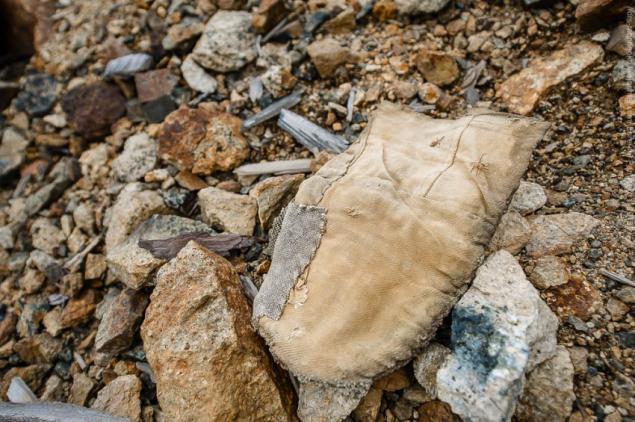
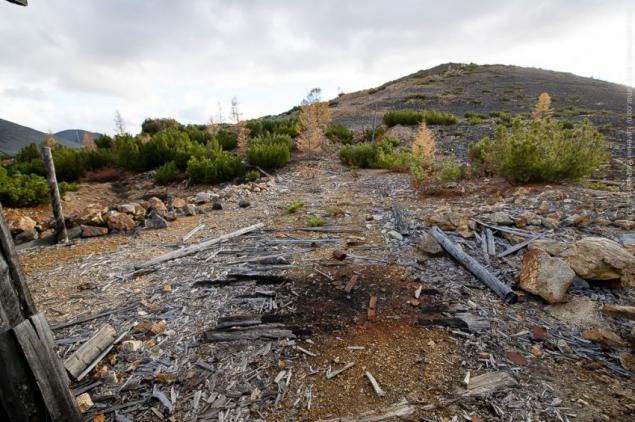
The panel of the receiver tube. The camp was equipped with radio are talking about wire on makeshift wooden insulators in houses.
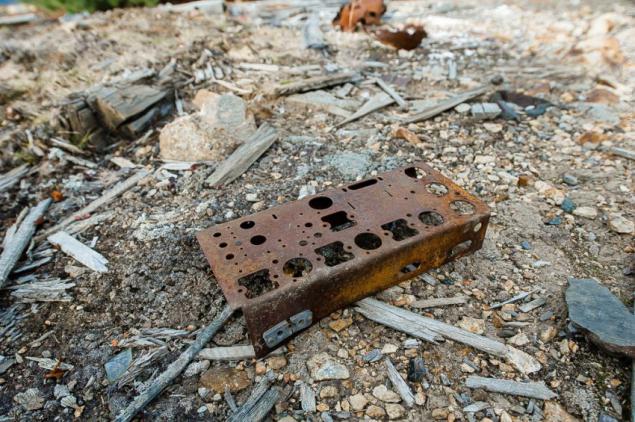
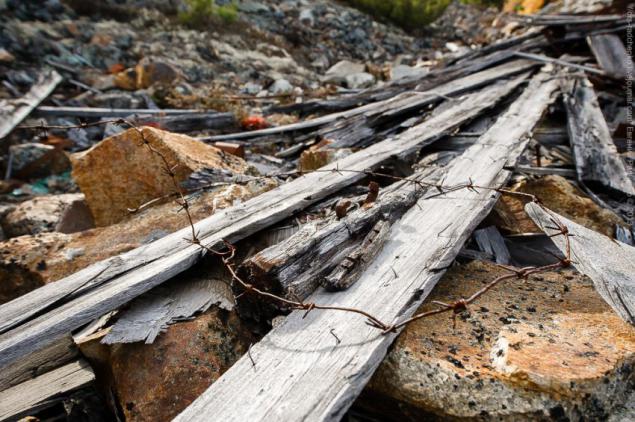
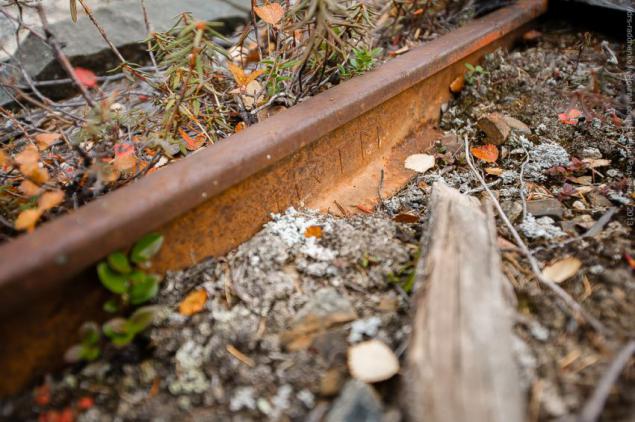
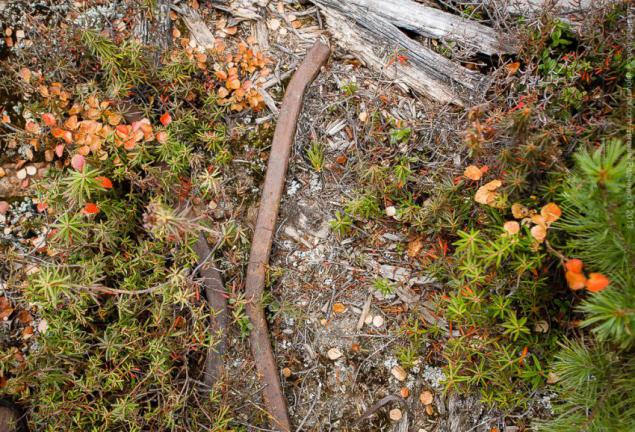
Lamp. Rag with fuel oil.
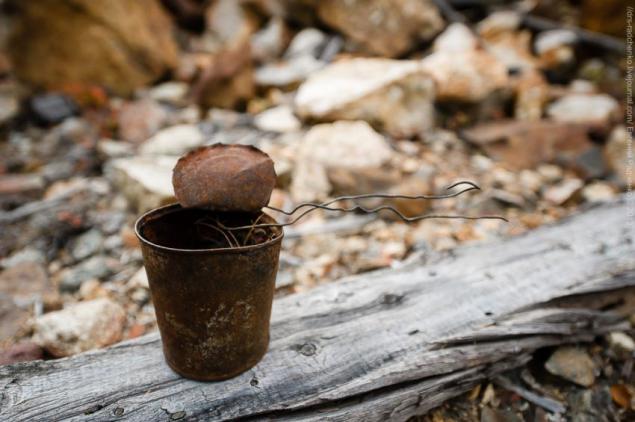
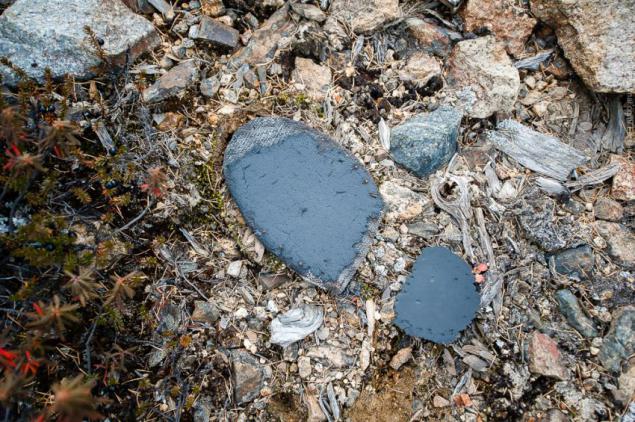
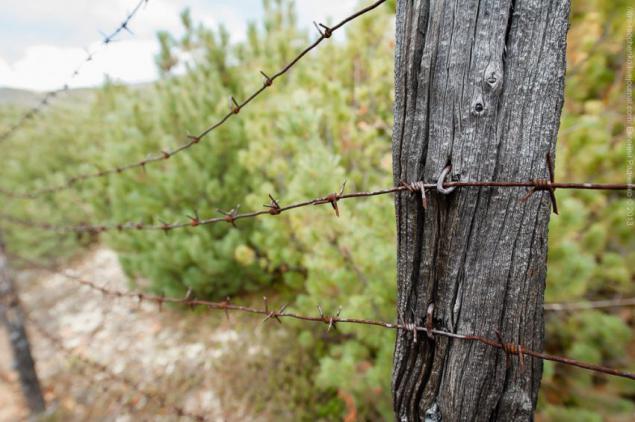
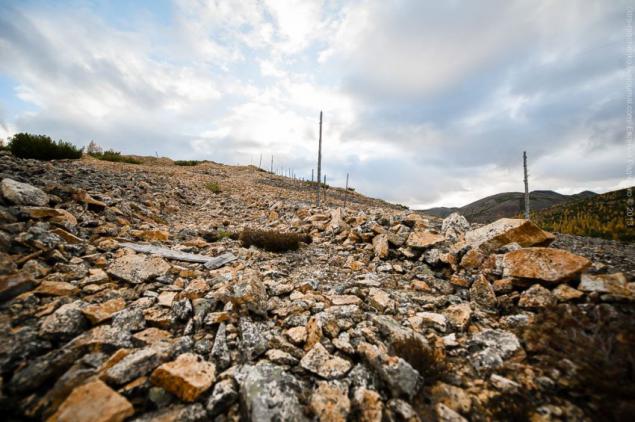
In the valley there are eight flushing devices. They mount them quickly, only the last, the eighth, was the only act before the end of the season. At autopsy landfill bulldozer pushed the "Sands" in a deep bunker, out on the conveyor belt, they climbed to the scrubber - large iron rotating barrel with a lot of holes and thick pins in for shredding incoming mixture of stones, dirt, water and metal. Large stones flew in Blade - growing pile of washed pebbles, and fine particles from the flow of water, which was pumped, fell into a long sloping block, paving grate, under which lay strips of cloth. Tin stone and sand settled on the cloth, and the earth and stones flying out the back of the pads. Then he settled concentrates were collected and washed again - cassiterite mining occurred on the scheme of gold, but of course, the amount of tin came across disproportionately. (AP Demant)
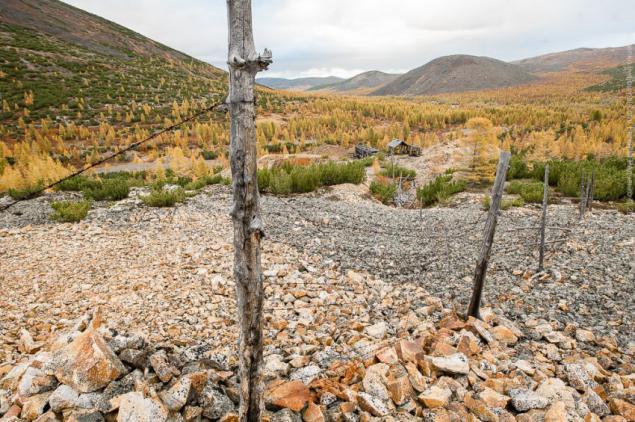
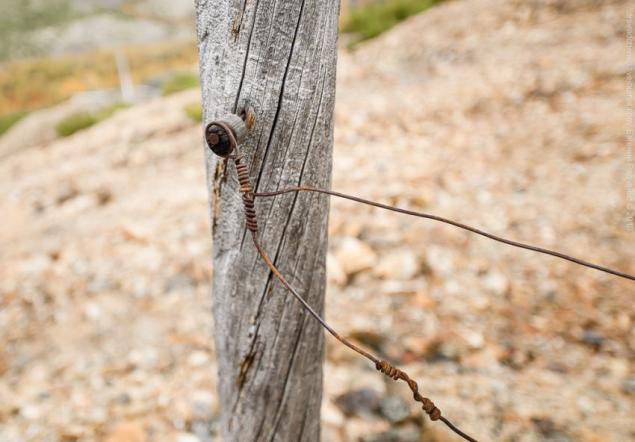
Telephony with watchtowers.
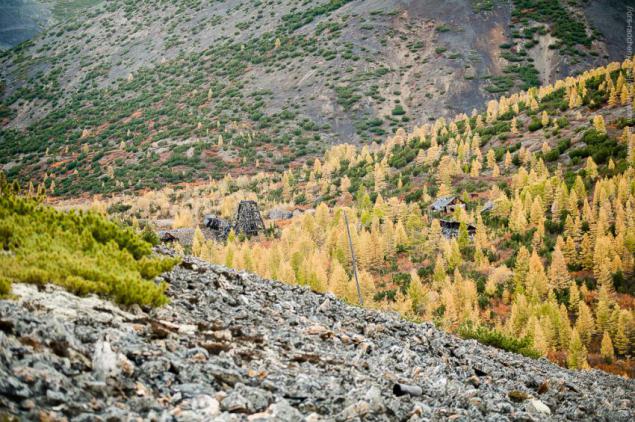
"Dnipro" was not a new place. During the war, there was a portion of the ore mine "Heth", located on the road thirty kilometers. When the forty-fourth year of tin for the state was less important than gold, the site shut down, barracks will soon come into disrepair, roads pozarastali grass and only forty-nine mine workings reactivated and began to open landfills in addition to tin washed stone on the devices. (AP Demant)
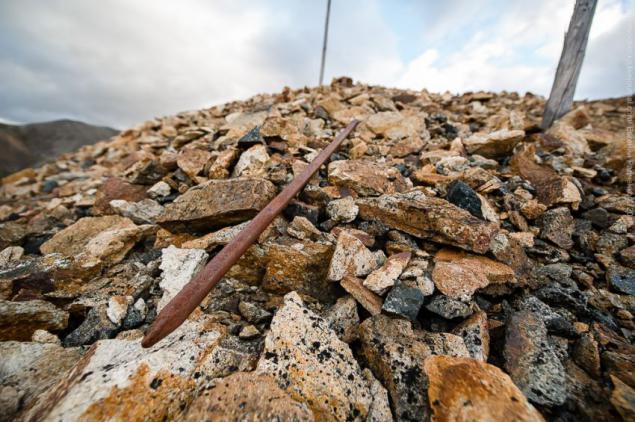
Also in the camp were Russian, Hungarian, Japanese, Estonians, Lithuanians, Finns, Greeks, Ukrainians, Hutsuls, the Serbs. All taught Russian language in the area.
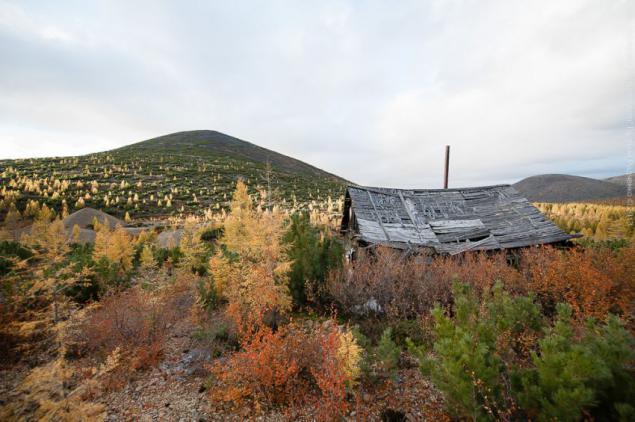
The nights are almost there. The sun was just logs in and after a few minutes already come out quite close, and the mosquitoes and midges - something terrible. While drinking tea or soup in a bowl certainly flies several pieces. Gave mosquito nets - a bag with a mesh front, pulls down. But they are of little help. (V. Pepeliaev)
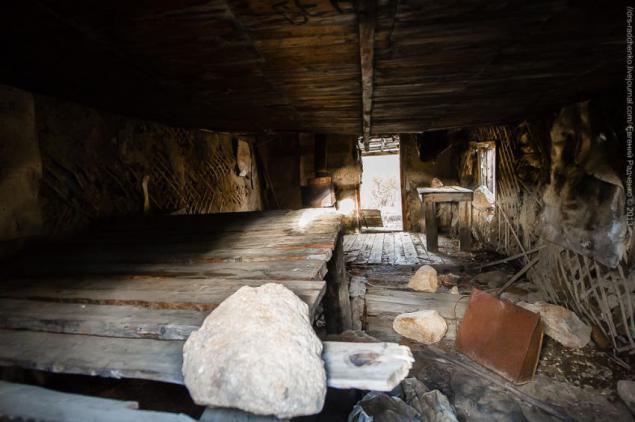
In the area of all the old barracks, a little podremontirovat, but there are already medical unit, BUR. A team of carpenters is building a new big barracks, dining room and new towers around the area. On the second day I have brought to the job. We were three people, the foreman put on the pit. This pit, above the gates on the wells. Two works on the collar, pull and unload tub - big bucket of thick iron (it weighs 60 kilograms), at the bottom of the third ship that blew up. Before lunch, I worked on the collar, and we fully cleared the bottom of the pit. They came to dinner, and then have produced an explosion - it is necessary to pull back. I volunteered to ship, and sat in the tub and my guys slowly lowered down to 6-8 meters. Loaded bucket with stones, raised her children, and I suddenly felt sick, dizzy, weak, shovel falls out of hand. And I sat in the tub and somehow shouted: "Come on!" Fortunately, just realized that poisoned gases remaining after the explosion in the ground, under rocks. After resting on the Kolyma clean air, he said to himself: "Do not climb!" I started to think how in the Far North, with sharply limited power and complete lack of freedom to survive and remain human? Even in the most difficult time for me hungry (already more than a year of constant malnutrition), I was convinced that survive only need to become familiar with the situation, weigh the possibilities, consider the steps. Remember the words of Confucius: "The man has three ways: meditation, imitation and experience. The first - the most noble, but difficult. The second - a light, and the third - the bitter. " I have no one to imitate, experience - not, therefore, necessary to reflect, and hoping only for themselves. I decided there and then to start to look for people who can give you sage advice. In the evening, I met a young Japanese man, a friend of Magadan shipment. He told me that he worked as a mechanic in the team mechanics (in mehtsehe), and that there are gaining mechanics - a lot of work on the construction of the sluice. He promised me to talk to the foreman. (V. Pepeliaev)
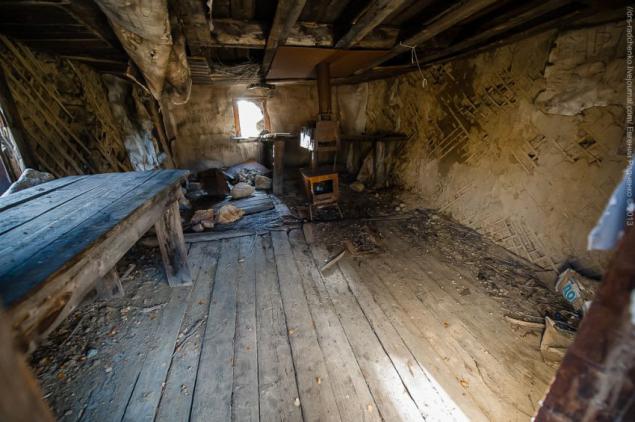
In late summer, "emergency" - three people escape from the work area. By way of derogation from the law, one has not returned, neither living nor dead. About the second I wrote brought beaten in BUR, then - in the box team. Brigadirstvoval there Zinchenko, who, they say, the Germans had somehow executioner. But here it is poorly finished. His one fine night killed a young prisoner. And he did it strictly according to the laws of the camp, first awakened to know - what, then finished and calmly went to the guard, handed the knife. Mode intensified, there were guns on the towers. There are all nervous, angry. Some of despair appeared suicidal thoughts. Frost, snow and wind. Fits foreman otchayavschiysya prisoner and asks: "Do a good deed, that the ax - cut off my fingers. I myself can not, do not have the courage, and I see you, you can. I'll tell you that himself. " Shows take off her shirt, then to tie the hand. Brigadier little thought and said: "Put your hand here on this log and turn away." He turned away and closed his eyes. The foreman turned his ax and struck the butt with two fingers, wrapped in a cloth poor guy's hand and sent to the zone. There he lay in the hospital a couple of days and days 10 "handle with care" in the zone, touch up and thanked the foreman for the trick for what kept her hand. (V. Pepeliaev)
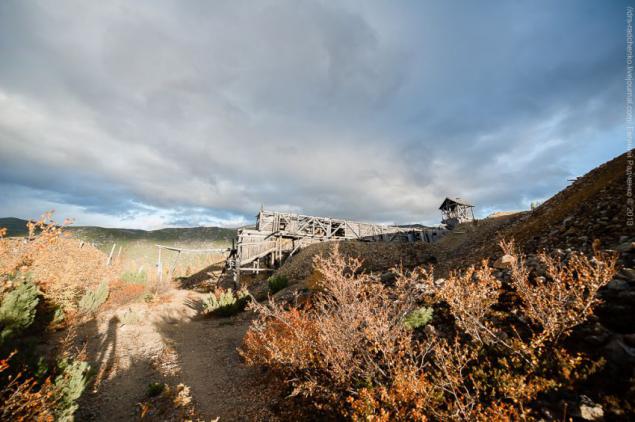
Cab ZIS-5
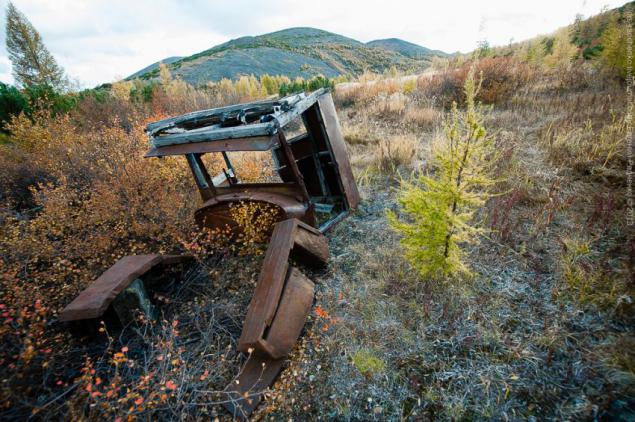
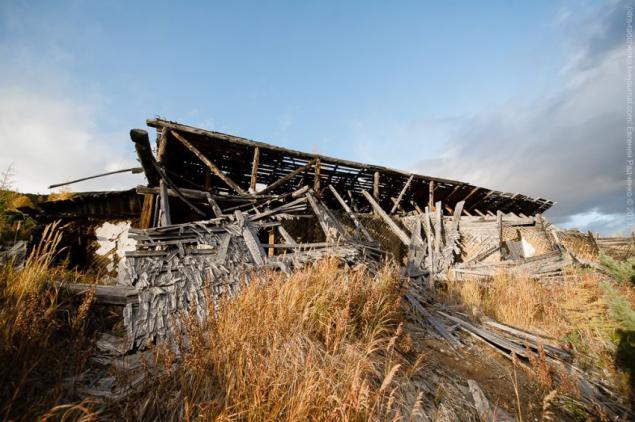
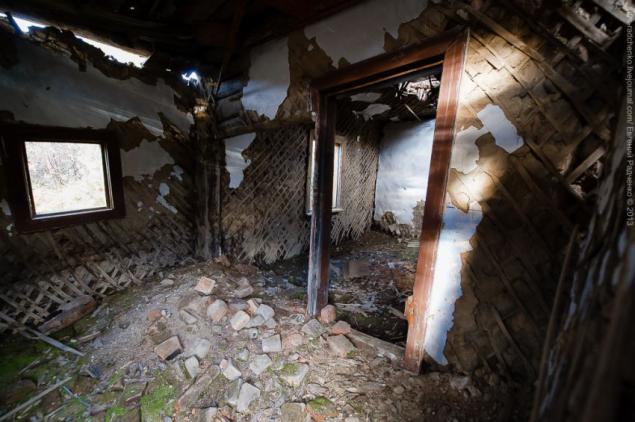
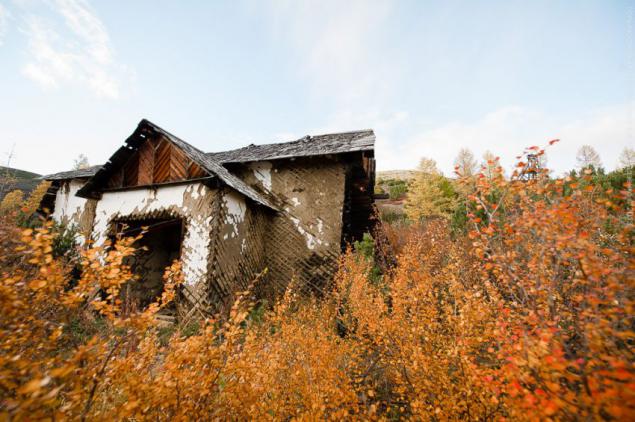
in the compressor room, in which there are two old armored motor and American mobile compressor crowd - convicts and floor Blasters. I went - back to the wall is short thickset man. Forehead in his blood, his nose broken. The old man brandishing a short crowbar. Three mechanics in greasy overalls, compressor room service, vainly trying to get close to him ... (P. Demant)
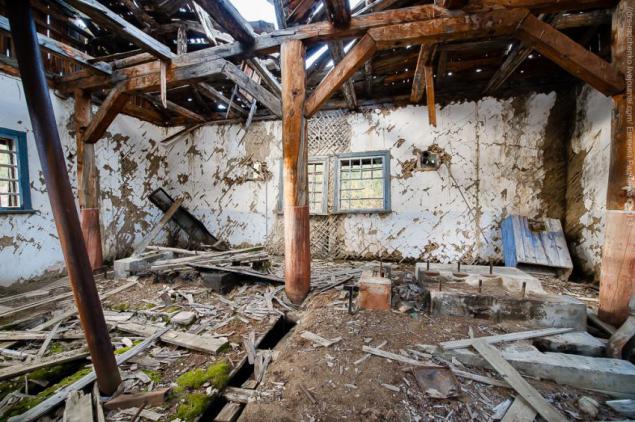
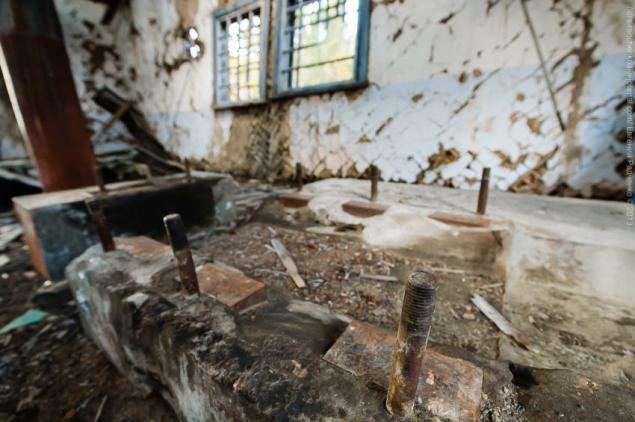
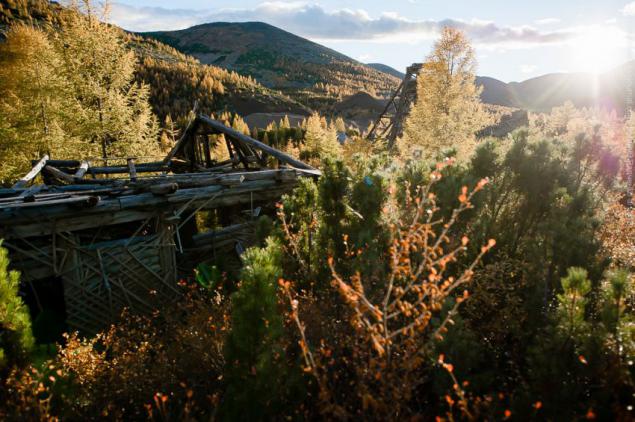
Soldier bath.
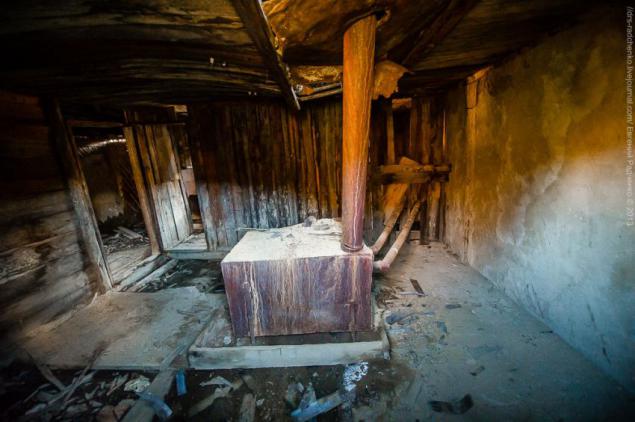
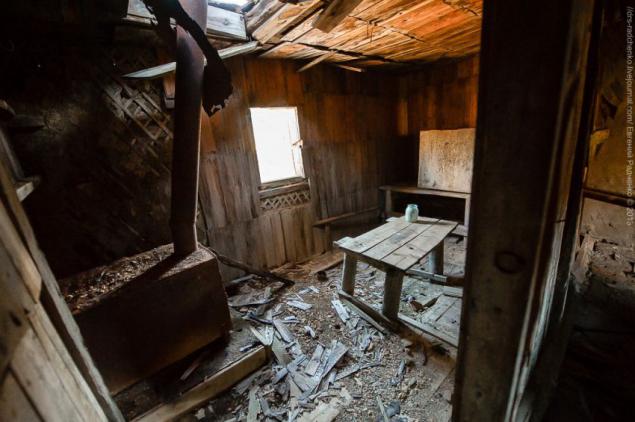
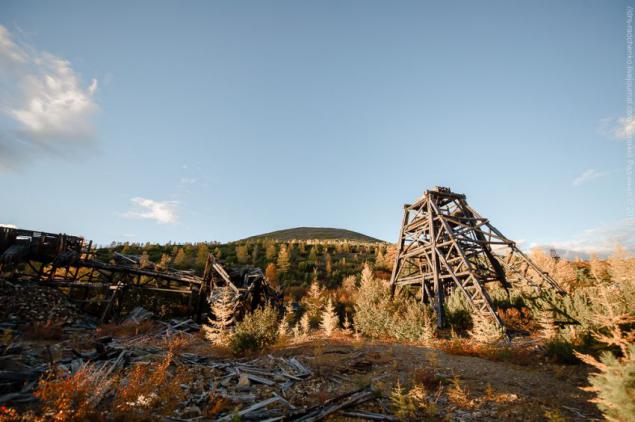
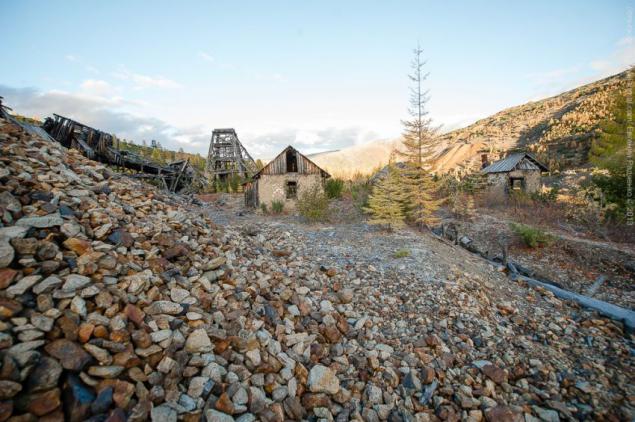
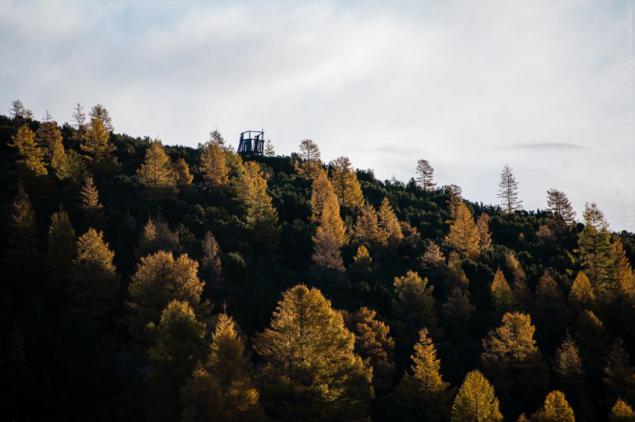
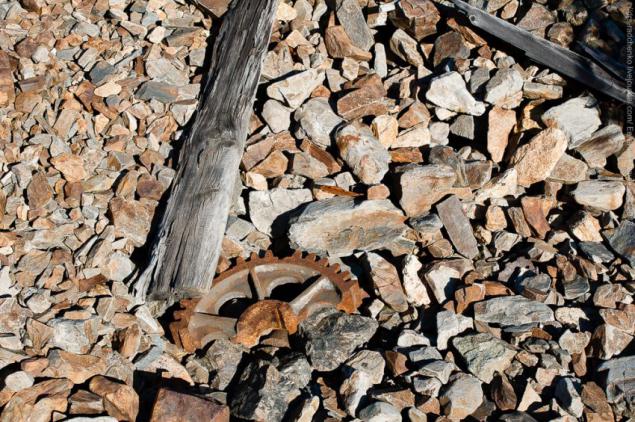
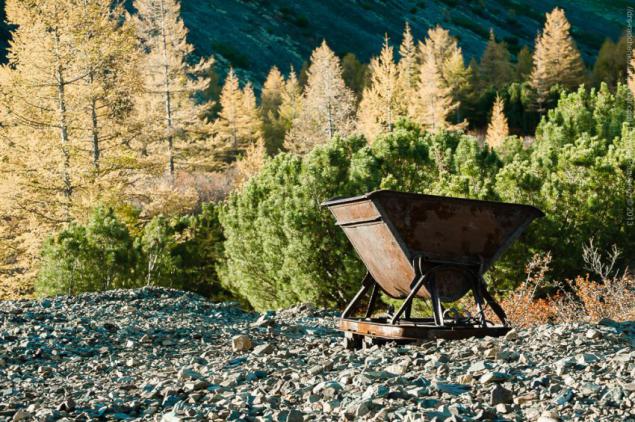
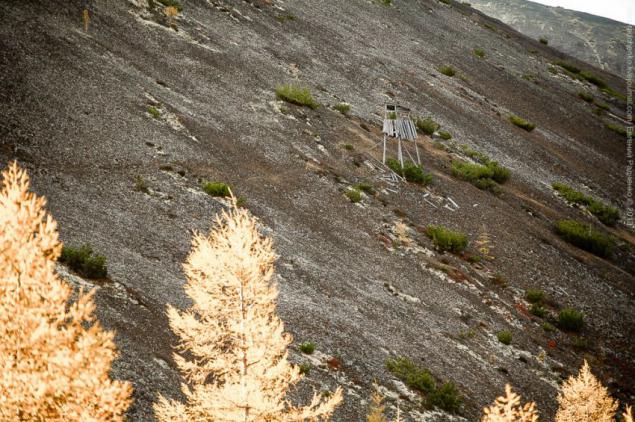
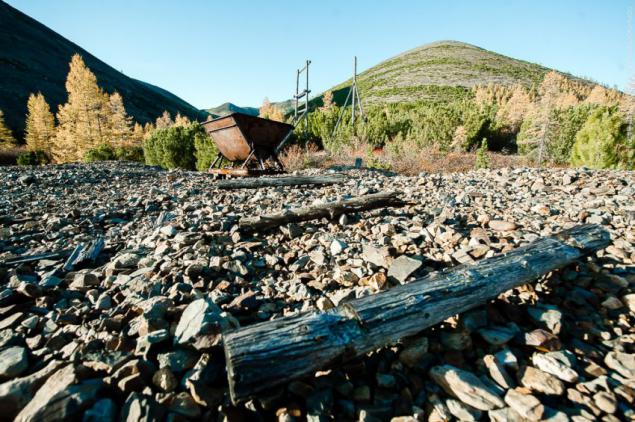
The medical unit is full, frequent injuries on the job - someone boulder crushed his leg, who was hit by an explosion, and soon the first dead - cheerful Petro Golubev, who had hoped to see his family soon. He died of jaundice, because there was enough drugs and sugar. He was taken by car (of course, dump trucks) for the eighth unit, where he became the right flank, followed in due course brought up a cemetery - the grave number on each number. "Cleopatra" (gl.vrach) for days did not leave the infirmary, but she was powerless - medicines for the "traitors" are not allowed! (AP Demant)
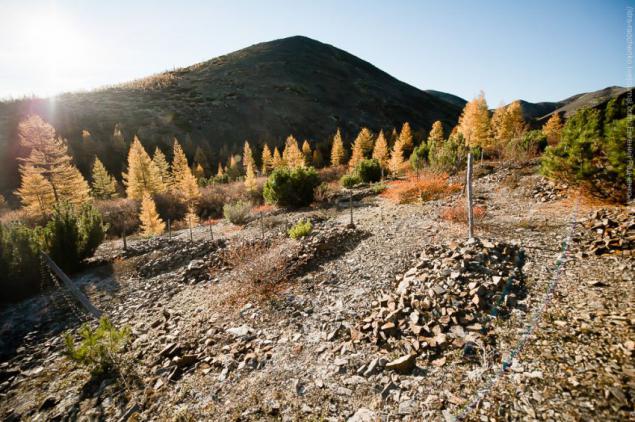
Graves is not too much, about 70 ... in the five years from 1000 people. Mortality was accident or transient disease.
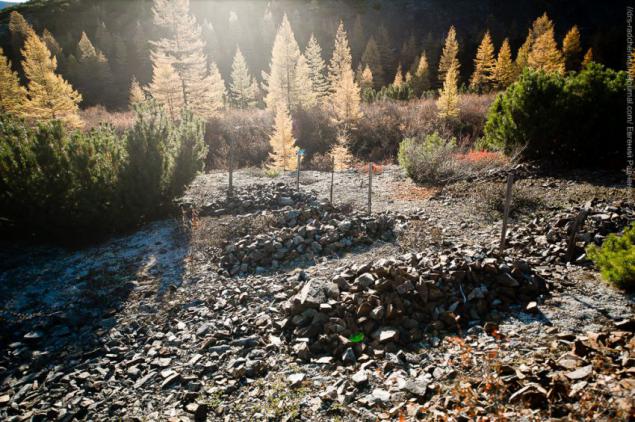
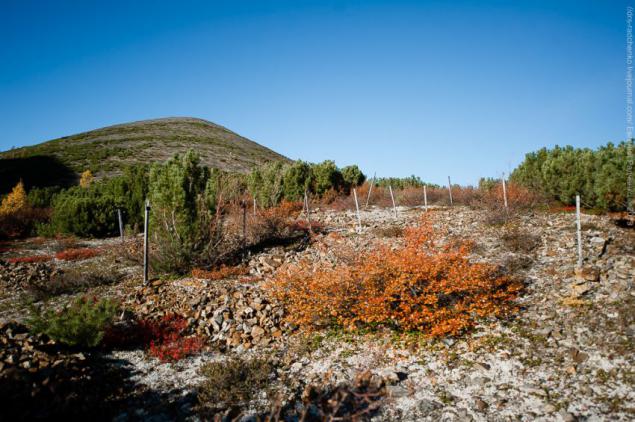
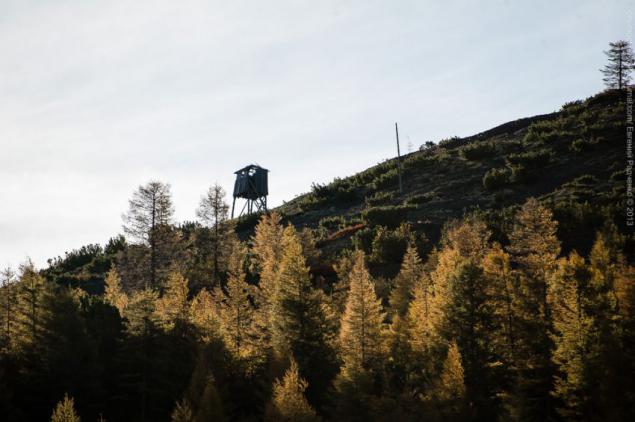
A hundred paces from the office, too, on a slope, showed white new building compressor, her stood a large bin in which to pour the ore from the sixth richest galleries. They turned over the hill road to the second station, where the ore descends the bremsbergu- trolleys. Near the bunker was clearly visible pit, we became a little uncomfortable when we passed: it was a way out of the fifth gallery, which collapsed in April 1944, burying an entire brigade from the stories, about thirty prisoners. (AP Demant)
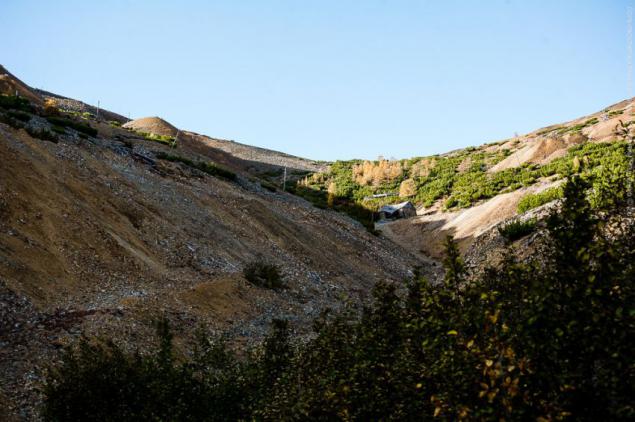
the first year at the mine was violently and was full of surprises. Geologists often got trapped with forecasts, huge landfills do not always meet expectations, but people sometimes accidentally ran into an incredibly rich place. Civilian scoured the polygons and often brought cassiterite nuggets weighing dozens of kilograms of them are well paid. Once on the conveyor belt unit has pyatipudovaya lump. Zeke, who took her by the simple stone and tried in vain to push, stop the tape. Suddenly, near the Greek appeared, he took a find on the truck, and promised the foreman - I do, boys, do not hurt! Soon, the instrument appeared Khachaturian and swore brigade was worth - Idiots, given such a piece! I would have a week without feeding standards, but still smokes brought energy ... disabled, the guys were sitting on the conveyor line and smoked cigarette butts collected from. - Could not help it, the chief citizen - said the foreman (AP Demant)
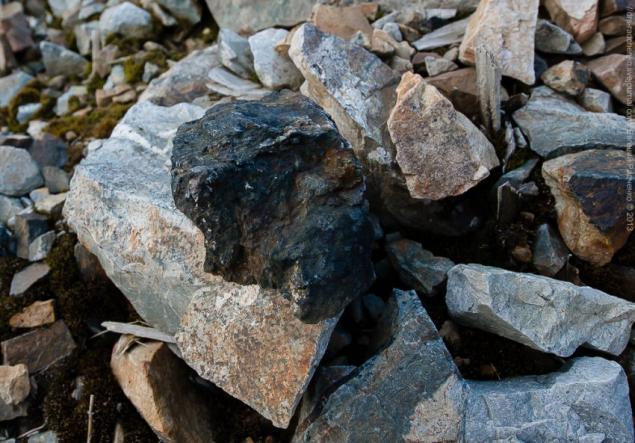
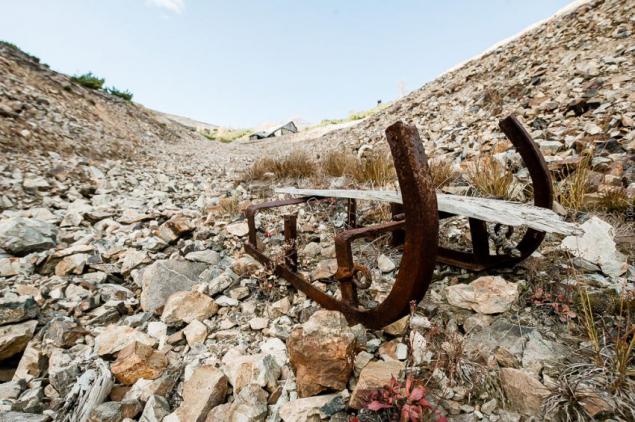
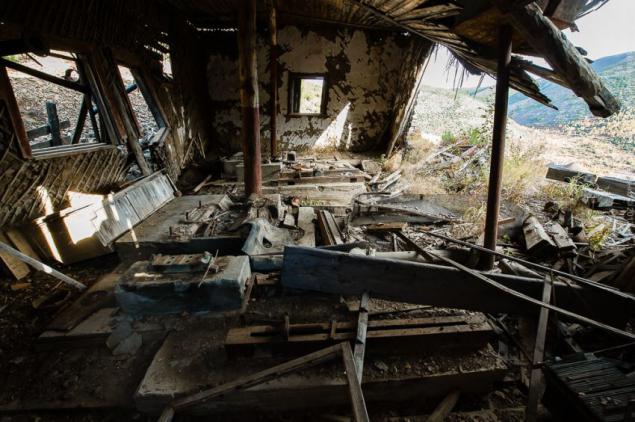
This is the same compressor on the hillside.
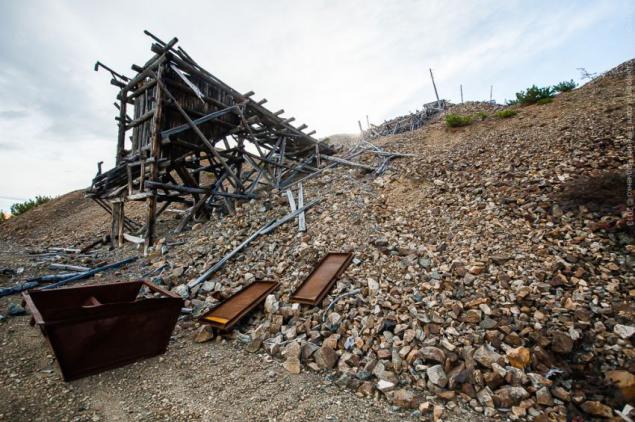
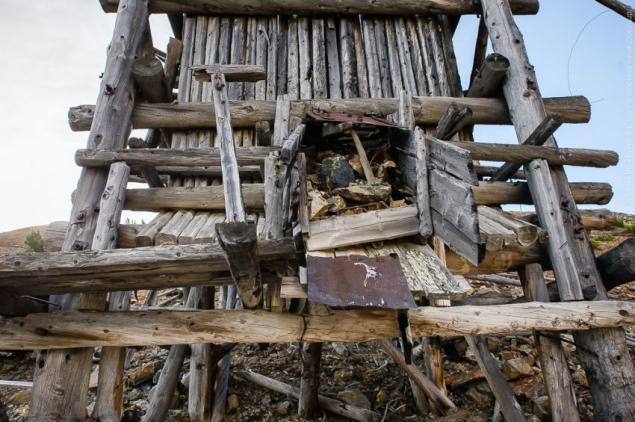
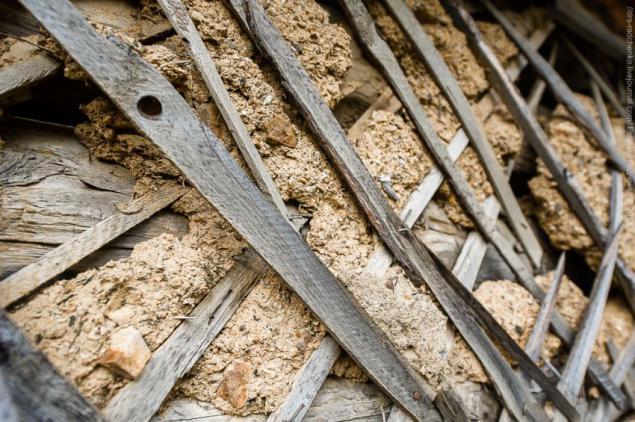
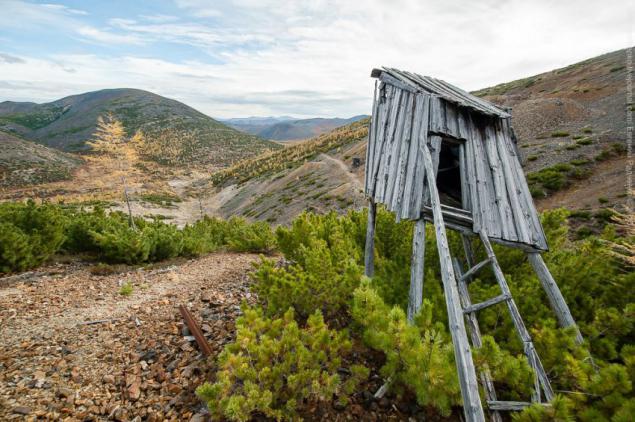
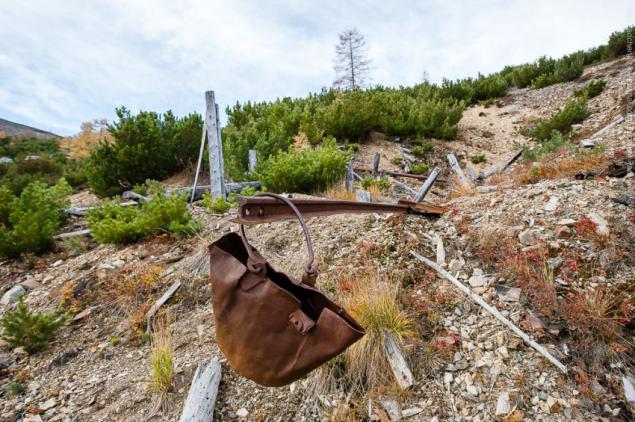
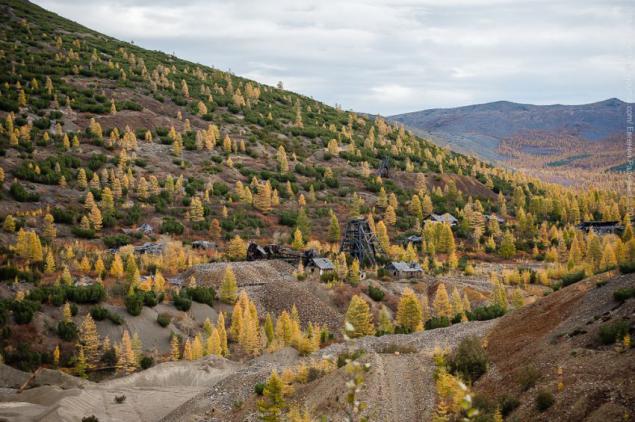
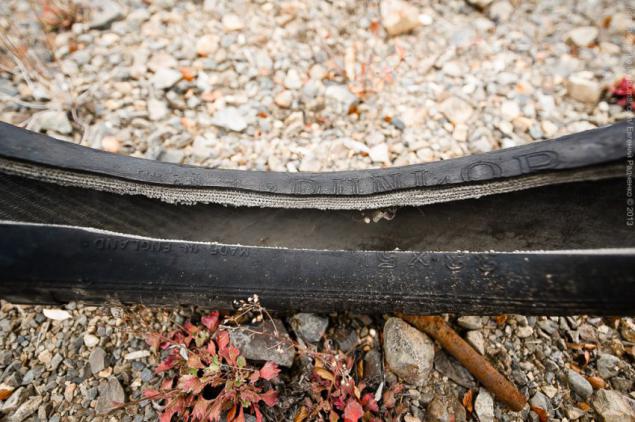
The wheels of the carriages of English. Bezkamerka, rubber, very heavy.
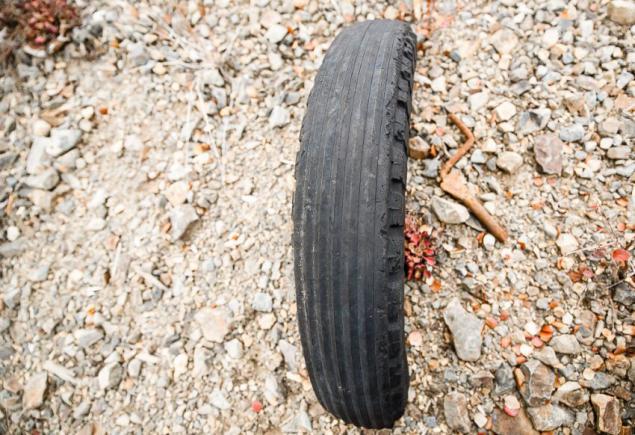
I'm sorry I can not remember the names of many interesting people with whom remained in the camp. Even the name of the chief of the camp do not remember. Only his nickname - "Literally." I remember because it is where it is necessary and should not be inserted into the conversation the word. But he is also remembered because really cared about the life of prisoners in the camp. When it was built without the common good barracks bunks and a single, 4 people; a spacious bath, laundry room, kitchen, dining room. Amateur when it flourished - a movie almost every day, sometimes concerts, brass band. All this is a bit distracted us from the terrible reality. Near the exit from the camp on a big stand with the title "When this will end?" Was informed about various shortcomings in the work camp, and I remember every time they passed by, quite legitimately, loudly said: "When this will end?" ( B. Pepeliaev)
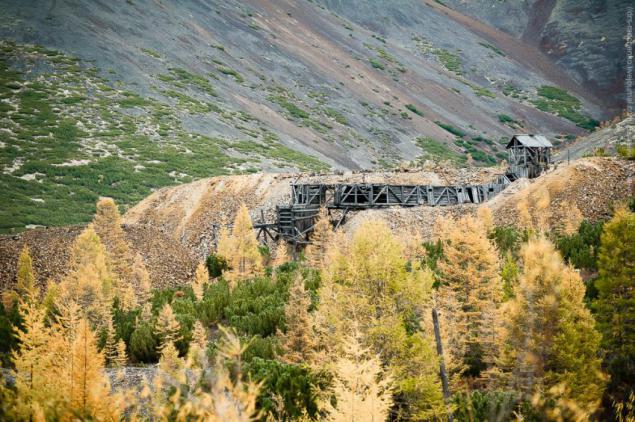
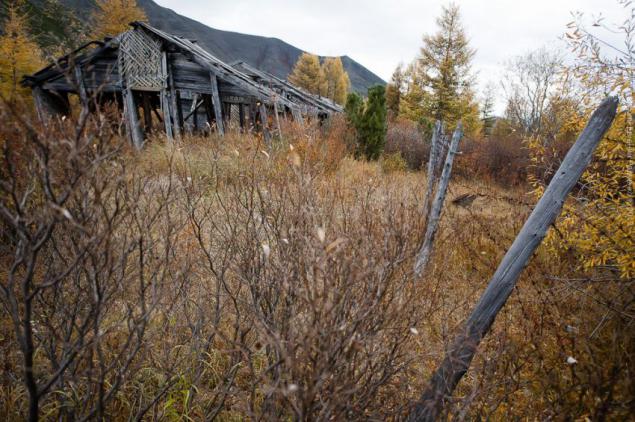
Housing barracks in the free part of the camp dormitory. Many individual rooms inside with hooks, radio and electricity.
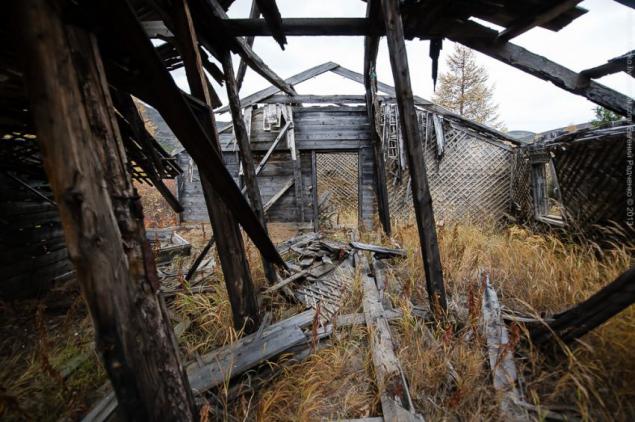
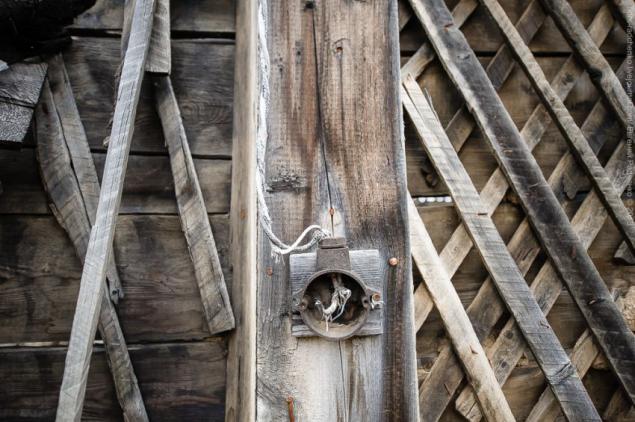
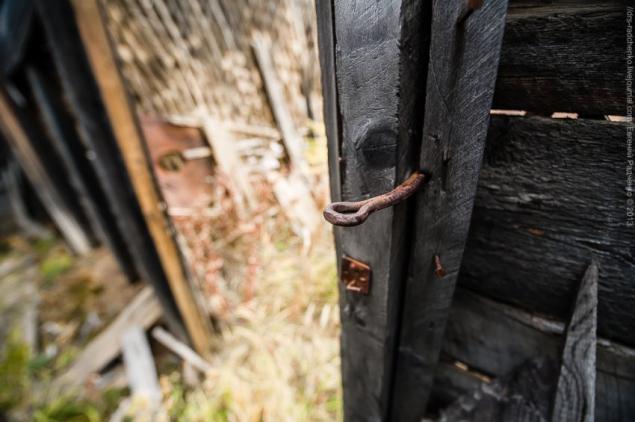
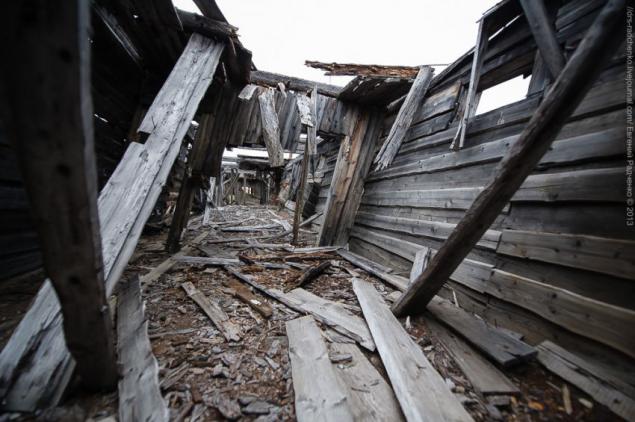
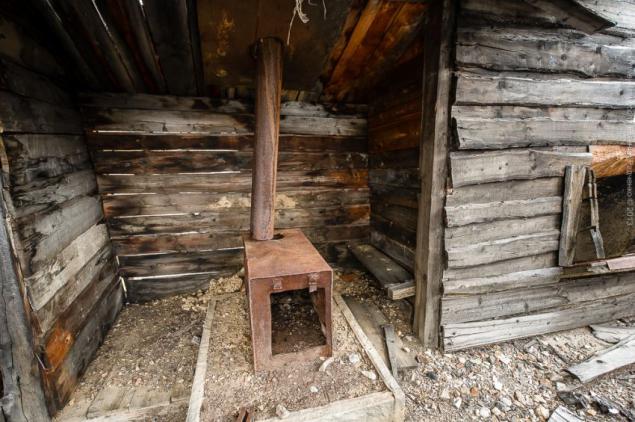
Lantern made from tin cans.
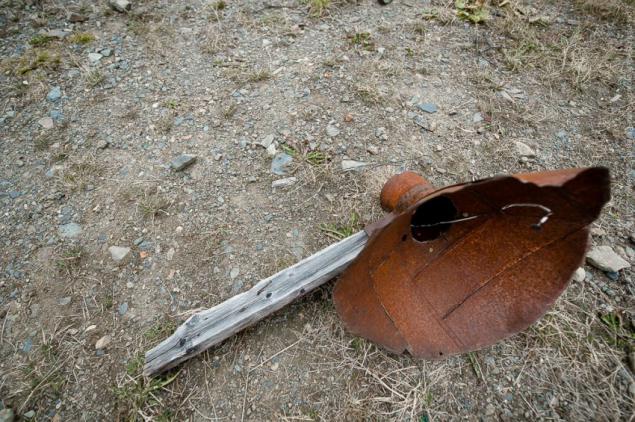
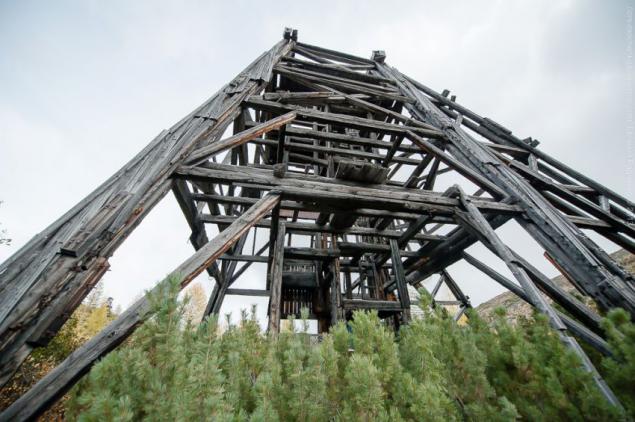
Before closing, he recalls former Dneprovets came in March 1953. Mourning-Union horn caught me at work. I walked out of the room, took off his cap and prayed to God, thanking for the deliverance of the motherland from the tyrant. They say that someone is upset, crying. We did not have this, I have not seen. If, before the death of Stalin punished those who broke the number, it is now the opposite - who did not stay in those not allowed to camp from work. Changes began. They took off with lattice windows, the night did not lock up the barracks: walk in the area where you want. In the dining room the bread began to give no rules as sliced on the table - so take it. There's also put large barrel with red fish - Keta, kitchen beginning to bake donuts (for money), appeared in a stall butter, sugar. Head Mode (Estonians called it "the chief clamp") walks the area - smiling, he probably has nothing to do, nothing to punish. Some prisoners with Article 58 with obvious pleasure they used criminal slang, inserting words into the conversation, "chernukha", "stool", "the guard", "ass" ... there was a rumor that will preserve our camp, to close. And, indeed, soon it began production cuts, and then - on the short list - stages. A lot of our people, and myself included, were in Chelbanyu. It is very close to a large city center - Susuman. (V. Pepeliaev)
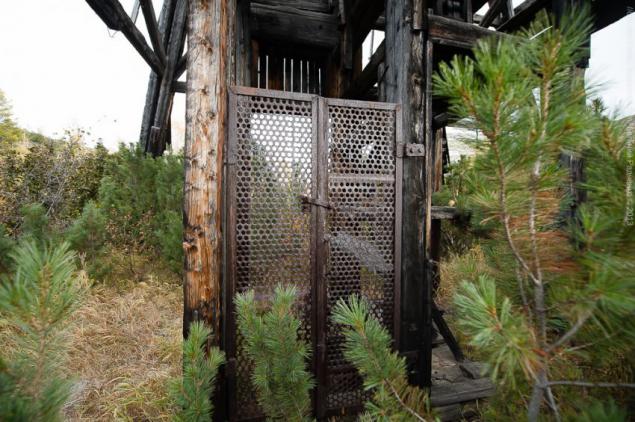
Source: drs-radchenko.livejournal.com

& quot; "Studebaker" enters into a deep and narrow, very steep hills to bite the valley. At the foot of one of them, we see the old tunnel with superstructures, rails and a large mound - blade. At the bottom of the bulldozer had already begun to spoil the land, turning all the herbs, roots, boulders and leaving behind a broad black band. Shortly before us arises town of tents and several large wooden houses, but we do not go back and turn right and climb to watch the camp. Watch an old gate wide open, from the liquid barrier of barbed wire on shaky rickety weathered pillars. Only the tower with a machine gun looks new - white pillars and the smell of pine needles. We set down and unceremoniously come into the camp. & Quot; (AP Demant)

"The name of his" Dnipro "was named a key - one of the tributaries of irregular. Officially, "Dnipro" called mine, although the main percentage of its production comes from the ore areas where tin is mined. A large area of the camp is spread at the foot of a very high hill. Among the few old huts are long green tent just above whiten houses new buildings. During the infirmary several prisoners in blue overalls impressive digging pits under the insulator. The dining room is located at the half-rotten, gone into the land of the barracks. We were settled in the second barracks, located above the other, near the old towers. I arranged on through the upper bunk, facing the window. For the view from here to the mountains with rocky peaks, green valleys and streams with waterfalls would have to pay an exorbitant price somewhere in Switzerland. But here, we get this fun is free, so we, at least, it seems. We still do not know that, contrary to the general rule of the camp, the reward for our hard work will scoop of porridge gruel yes - we will select all earned the Coast camps "(P. Demant)

Boer punch. The slot was inserted a solid bit.

Carpenters did hopper, platforms, trays, and our team has set motors, gears, conveyors. In total, we launched six such sluice. As the start of each working on it were our mechanics - the main motor on the pump. I was left on the last instrument mechanic. (V. Pepeliaev)

We worked in two shifts, 12 hours a day seven days a week. Lunch is brought to work. Lunch - a 0, 5 liters of soup (water with black cabbage), 200 grams of cereal, oatmeal, and 300 grams of bread. My job - including a drum, tape and sit see that everything revolves yes on tape was a rock, and everything. But sometimes, something breaks - can tear tape stuck stone in a bunker, refuse pump or something. Then come on, come on! 10 days afternoon, ten - night. During the day, of course, easier. On the night shift until you reach the zone until breakfast, and just fall asleep - have dinner, go to bed - to check, and then, and dinner, and - on the job. (V. Pepeliaev)


The panel of the receiver tube. The camp was equipped with radio are talking about wire on makeshift wooden insulators in houses.




Lamp. Rag with fuel oil.




In the valley there are eight flushing devices. They mount them quickly, only the last, the eighth, was the only act before the end of the season. At autopsy landfill bulldozer pushed the "Sands" in a deep bunker, out on the conveyor belt, they climbed to the scrubber - large iron rotating barrel with a lot of holes and thick pins in for shredding incoming mixture of stones, dirt, water and metal. Large stones flew in Blade - growing pile of washed pebbles, and fine particles from the flow of water, which was pumped, fell into a long sloping block, paving grate, under which lay strips of cloth. Tin stone and sand settled on the cloth, and the earth and stones flying out the back of the pads. Then he settled concentrates were collected and washed again - cassiterite mining occurred on the scheme of gold, but of course, the amount of tin came across disproportionately. (AP Demant)


Telephony with watchtowers.

"Dnipro" was not a new place. During the war, there was a portion of the ore mine "Heth", located on the road thirty kilometers. When the forty-fourth year of tin for the state was less important than gold, the site shut down, barracks will soon come into disrepair, roads pozarastali grass and only forty-nine mine workings reactivated and began to open landfills in addition to tin washed stone on the devices. (AP Demant)

Also in the camp were Russian, Hungarian, Japanese, Estonians, Lithuanians, Finns, Greeks, Ukrainians, Hutsuls, the Serbs. All taught Russian language in the area.

The nights are almost there. The sun was just logs in and after a few minutes already come out quite close, and the mosquitoes and midges - something terrible. While drinking tea or soup in a bowl certainly flies several pieces. Gave mosquito nets - a bag with a mesh front, pulls down. But they are of little help. (V. Pepeliaev)

In the area of all the old barracks, a little podremontirovat, but there are already medical unit, BUR. A team of carpenters is building a new big barracks, dining room and new towers around the area. On the second day I have brought to the job. We were three people, the foreman put on the pit. This pit, above the gates on the wells. Two works on the collar, pull and unload tub - big bucket of thick iron (it weighs 60 kilograms), at the bottom of the third ship that blew up. Before lunch, I worked on the collar, and we fully cleared the bottom of the pit. They came to dinner, and then have produced an explosion - it is necessary to pull back. I volunteered to ship, and sat in the tub and my guys slowly lowered down to 6-8 meters. Loaded bucket with stones, raised her children, and I suddenly felt sick, dizzy, weak, shovel falls out of hand. And I sat in the tub and somehow shouted: "Come on!" Fortunately, just realized that poisoned gases remaining after the explosion in the ground, under rocks. After resting on the Kolyma clean air, he said to himself: "Do not climb!" I started to think how in the Far North, with sharply limited power and complete lack of freedom to survive and remain human? Even in the most difficult time for me hungry (already more than a year of constant malnutrition), I was convinced that survive only need to become familiar with the situation, weigh the possibilities, consider the steps. Remember the words of Confucius: "The man has three ways: meditation, imitation and experience. The first - the most noble, but difficult. The second - a light, and the third - the bitter. " I have no one to imitate, experience - not, therefore, necessary to reflect, and hoping only for themselves. I decided there and then to start to look for people who can give you sage advice. In the evening, I met a young Japanese man, a friend of Magadan shipment. He told me that he worked as a mechanic in the team mechanics (in mehtsehe), and that there are gaining mechanics - a lot of work on the construction of the sluice. He promised me to talk to the foreman. (V. Pepeliaev)

In late summer, "emergency" - three people escape from the work area. By way of derogation from the law, one has not returned, neither living nor dead. About the second I wrote brought beaten in BUR, then - in the box team. Brigadirstvoval there Zinchenko, who, they say, the Germans had somehow executioner. But here it is poorly finished. His one fine night killed a young prisoner. And he did it strictly according to the laws of the camp, first awakened to know - what, then finished and calmly went to the guard, handed the knife. Mode intensified, there were guns on the towers. There are all nervous, angry. Some of despair appeared suicidal thoughts. Frost, snow and wind. Fits foreman otchayavschiysya prisoner and asks: "Do a good deed, that the ax - cut off my fingers. I myself can not, do not have the courage, and I see you, you can. I'll tell you that himself. " Shows take off her shirt, then to tie the hand. Brigadier little thought and said: "Put your hand here on this log and turn away." He turned away and closed his eyes. The foreman turned his ax and struck the butt with two fingers, wrapped in a cloth poor guy's hand and sent to the zone. There he lay in the hospital a couple of days and days 10 "handle with care" in the zone, touch up and thanked the foreman for the trick for what kept her hand. (V. Pepeliaev)

Cab ZIS-5




in the compressor room, in which there are two old armored motor and American mobile compressor crowd - convicts and floor Blasters. I went - back to the wall is short thickset man. Forehead in his blood, his nose broken. The old man brandishing a short crowbar. Three mechanics in greasy overalls, compressor room service, vainly trying to get close to him ... (P. Demant)



Soldier bath.









The medical unit is full, frequent injuries on the job - someone boulder crushed his leg, who was hit by an explosion, and soon the first dead - cheerful Petro Golubev, who had hoped to see his family soon. He died of jaundice, because there was enough drugs and sugar. He was taken by car (of course, dump trucks) for the eighth unit, where he became the right flank, followed in due course brought up a cemetery - the grave number on each number. "Cleopatra" (gl.vrach) for days did not leave the infirmary, but she was powerless - medicines for the "traitors" are not allowed! (AP Demant)

Graves is not too much, about 70 ... in the five years from 1000 people. Mortality was accident or transient disease.



A hundred paces from the office, too, on a slope, showed white new building compressor, her stood a large bin in which to pour the ore from the sixth richest galleries. They turned over the hill road to the second station, where the ore descends the bremsbergu- trolleys. Near the bunker was clearly visible pit, we became a little uncomfortable when we passed: it was a way out of the fifth gallery, which collapsed in April 1944, burying an entire brigade from the stories, about thirty prisoners. (AP Demant)

the first year at the mine was violently and was full of surprises. Geologists often got trapped with forecasts, huge landfills do not always meet expectations, but people sometimes accidentally ran into an incredibly rich place. Civilian scoured the polygons and often brought cassiterite nuggets weighing dozens of kilograms of them are well paid. Once on the conveyor belt unit has pyatipudovaya lump. Zeke, who took her by the simple stone and tried in vain to push, stop the tape. Suddenly, near the Greek appeared, he took a find on the truck, and promised the foreman - I do, boys, do not hurt! Soon, the instrument appeared Khachaturian and swore brigade was worth - Idiots, given such a piece! I would have a week without feeding standards, but still smokes brought energy ... disabled, the guys were sitting on the conveyor line and smoked cigarette butts collected from. - Could not help it, the chief citizen - said the foreman (AP Demant)



This is the same compressor on the hillside.







The wheels of the carriages of English. Bezkamerka, rubber, very heavy.

I'm sorry I can not remember the names of many interesting people with whom remained in the camp. Even the name of the chief of the camp do not remember. Only his nickname - "Literally." I remember because it is where it is necessary and should not be inserted into the conversation the word. But he is also remembered because really cared about the life of prisoners in the camp. When it was built without the common good barracks bunks and a single, 4 people; a spacious bath, laundry room, kitchen, dining room. Amateur when it flourished - a movie almost every day, sometimes concerts, brass band. All this is a bit distracted us from the terrible reality. Near the exit from the camp on a big stand with the title "When this will end?" Was informed about various shortcomings in the work camp, and I remember every time they passed by, quite legitimately, loudly said: "When this will end?" ( B. Pepeliaev)


Housing barracks in the free part of the camp dormitory. Many individual rooms inside with hooks, radio and electricity.





Lantern made from tin cans.


Before closing, he recalls former Dneprovets came in March 1953. Mourning-Union horn caught me at work. I walked out of the room, took off his cap and prayed to God, thanking for the deliverance of the motherland from the tyrant. They say that someone is upset, crying. We did not have this, I have not seen. If, before the death of Stalin punished those who broke the number, it is now the opposite - who did not stay in those not allowed to camp from work. Changes began. They took off with lattice windows, the night did not lock up the barracks: walk in the area where you want. In the dining room the bread began to give no rules as sliced on the table - so take it. There's also put large barrel with red fish - Keta, kitchen beginning to bake donuts (for money), appeared in a stall butter, sugar. Head Mode (Estonians called it "the chief clamp") walks the area - smiling, he probably has nothing to do, nothing to punish. Some prisoners with Article 58 with obvious pleasure they used criminal slang, inserting words into the conversation, "chernukha", "stool", "the guard", "ass" ... there was a rumor that will preserve our camp, to close. And, indeed, soon it began production cuts, and then - on the short list - stages. A lot of our people, and myself included, were in Chelbanyu. It is very close to a large city center - Susuman. (V. Pepeliaev)

Source: drs-radchenko.livejournal.com

